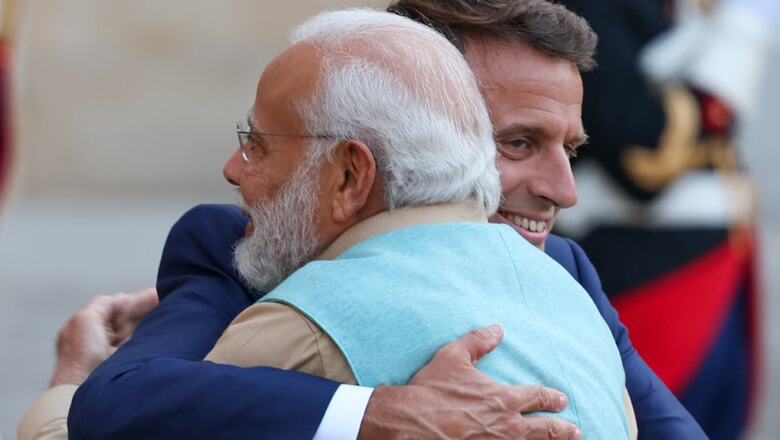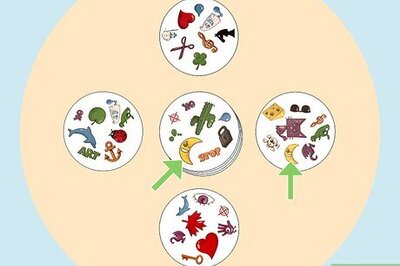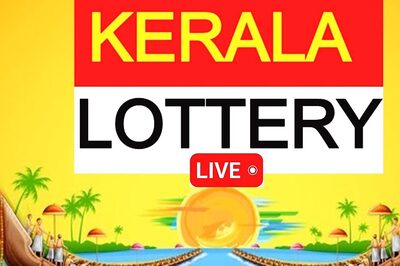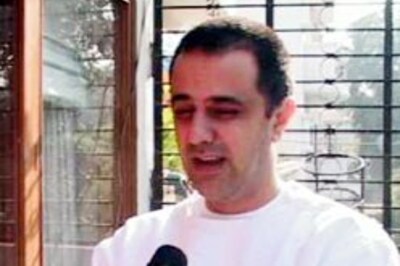
views
Prime Minister Narendra Modi was chief guest at France’s Bastille Day on July 14 this year. Six months later President Emmanuel Macron is chief guest at our Republic Day on January 26. This is quite unusual in any relationship, however friendly, as such gestures at the State level are normally spread over time. In this case, President Joe Biden had been invited to be the chief guest, and the plan was to use the occasion of his presence to also hold the Quad summit. Eventually, President Biden decided the calendar of his engagements was such that he could not accept the invitation. President Macron was invited at very short notice to be the chief guest instead, which he promptly accepted. This is indeed most graceful on his part.
Normally, the president of a major country like France, with a full domestic and international agenda, would not be available for a visit abroad at short notice. In Macron’s case, there is much contestation of his policies at home, social protests are frequent, and his popularity ratings are low. Externally, Europe is facing great stress because of the conflict in Ukraine, with the fraying of French-German ties adding to the strains.
Macron in any case deserves the honour of being the chief guest at our R-Day celebrations. His immediate predecessors — Presidents Sarkozy and Hollande — have been chief guests, and further back in time so have been Presidents Chirac and Giscard d’Estaing. Macron has visited India twice, once bilaterally on a State visit in 2018 and the second time for the G20 summit in September 2023. In view of the expanding strategic ties between India and France, and the excellent personal chemistry between Modi and Macron who speak often to each other, the French have been desirous that Macron be invited to be chief guest at our R-Day celebrations. This has now happened.
Modi’s own visit to France in July this year was a great success personally because of the high regard shown to him and, of course, substantially in terms of outcomes. A bilateral roadmap for the next quarter-century was adopted covering the strengthening of economic ties, identification of joint initiatives in the areas of renewable energy, green hydrogen, artificial intelligence, semiconductors, cyber, digital technology, tie-ups in the start-up and innovation ecosystems, technology supply chains, etc. India and France are pursuing ambitious bilateral cooperation on advanced digital technologies, particularly in the fields of supercomputing, cloud computing, Artificial Intelligence, and quantum technologies, including in the framework of the Global Partnership on Artificial Intelligence (GPIA).
In the context of climate change, the two countries are working on a roadmap in the areas of the blue economy and ocean governance.
In defence, India is focusing on Make in India and atmanirbharta (self-reliance) goals centred on co-production and co-development, including in the construction of submarines and naval vessels. More cooperation between the defence space agencies of the two countries was visualised during Modi’s visit. The project to build six French-origin nuclear reactors at Jaitapur continues to be on the table, with discussions also on cooperation in Small and Advanced Modular Reactors. Space-based Maritime Domain Awareness is an important potential area of cooperation.
India’s decision to acquire 26 Rafales (naval version) for India’s new aircraft carrier as well as the construction of three additional Scorpene submarines by Mazagaon Dock in collaboration with the French Naval Group has already been announced and negotiations are taking place. It was agreed that in the future, India and France will support the joint development of a combat aircraft engine, and industrial cooperation for the motorisation of heavy-lift helicopters under the Indian Multi Role Helicopter [IMRH] programme with Safran Helicopter Engine, France. A contract has been concluded between Safran Helicopter Engine and HAL for the Transfer of Technology of Forging and Castings for the Shakti Engine, as well as an MoU between Garden Reach Shipbuilders and Engineers Ltd. (GRSE), and Naval Group, France, to collaborate in the field of surface ships. To this end, both countries are also working towards adopting a Roadmap on Defense Industrial Cooperation.
A new Indo-Pacific Roadmap was adopted during Modi’s visit. Trilateral cooperation with like-minded partners in the region will also be a key pillar of cooperation in the Indo-Pacific region, with the United Arab Emirates and Australia. India, France, and the UAE have just conducted a major air exercise.
On terrorism, it was agreed during Modi’s visit that India and France would strengthen cooperation in all aspects to stay ahead of the evolving threat. This would include operational cooperation, multilateral action, countering online radicalisation and combating the financing of terrorism, particularly through the No Money for Terror (NMFT) initiative and the Christchurch Call to Action to Eliminate Terrorist and Violent Extremism Content Online.
During Macron’s current visit, progress on the agenda set out in July will no doubt be assessed, and new directions given. Any dramatic new initiative is unlikely to be announced, though the two sides will no doubt be working on some new ones. One can expect some agreements on space-based defence capabilities, identifying a joint project in west Africa under the ambit of the International Solar Alliance which was a joint India-France initiative, and, in the nuclear domain, explore cooperation in small modular nuclear reactors (SMRs), which are advanced nuclear reactors with a power capacity of up to 300 MW per unit. On the Jaitapur nuclear project, talks will continue but cost issues remain critical and need resolution.
Macron will be president till 2027. With Modi’s re-election this year considered quasi-certain, the prospects of India and France steadily consolidating their strategic ties are manifest. India is rising economically and is likely to become the third-largest economy by 2030. Already, its international stature has grown, with the success of its G20 presidency. Our diplomatic posture has become much more self-confident, our voice is heard with increasing respect, and our capacity and willingness to resist pressures that militate against our national interest have been demonstrated, whether in the context of the Ukraine conflict, our ties with Russia, or our border confrontation with China. The cultural and civilisational revival of India adds to its global footprint. India is positioning itself as a voice of the Global South and this adds to our diplomatic weight in managing our international relations.
All this makes India a more valuable partner for France, which in turn, is under pressure within the EU in the context of the weight the US exercises in Europe through NATO. The French-German tandem within the EU is not working as before, with Germany becoming more firmly pro-Atlantic. France seeks strategic autonomy, but Europe is not supportive as it wants to continue relying on the US for security. The French position in west Africa has eroded dramatically. France, as a permanent member of the UN Security Council, with a great tradition of diplomacy, as a nuclear power with advanced capabilities in defence production and space technologies, with a strong belief that it has international responsibilities is a partner of choice for India. France is thwarted, even in Europe, by the Anglo-Saxon powers, and in this context also its privileged relationship with India, an erstwhile British colony, should be a matter of satisfaction for French policymakers.
India, which has the strongest navy in the Indian Ocean, is clearly a valuable partner in the Indo-Pacific region, where France has territories and a military presence. France is concerned, as is Europe increasingly, about China’s more aggressive international posture. While France has no direct security threat from China, as India has, it is concerned about its position in the Pacific and the western Indian Ocean being eroded by Chinese power. India-France cooperation in the maritime space is real on the ground and will grow.
If, as part of its strategic autonomy, India seeks more diplomatic elbow room by its membership of West-led forums and those with membership of Russia and China, France too wants to position itself as a bridge between North and South and West and East, which explains its thwarted bid to be invited to the BRICS summit in South Africa last year. Closer ties with India can assist France in pursuing its interests in the Global South. India would be very receptive to such a French strategy, given the mutual confidence between the two countries.
All in all, Macron’s visit as chief guest on January 26 will give a boost to the India-France strategic partnership.
Kanwal Sibal is a former Indian Foreign Secretary. He was India’s Ambassador to Turkey, Egypt, France and Russia. Views expressed in the above piece are personal and solely those of the author. They do not necessarily reflect News18’s views.


















Comments
0 comment